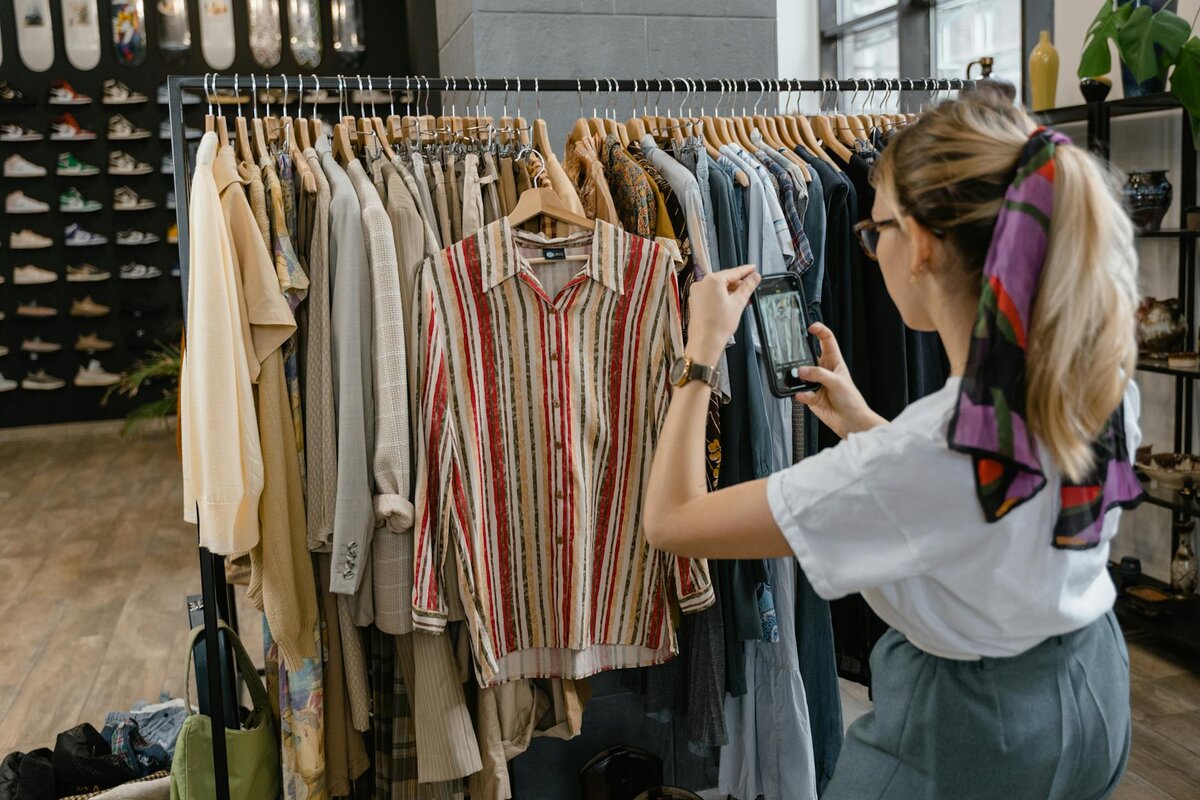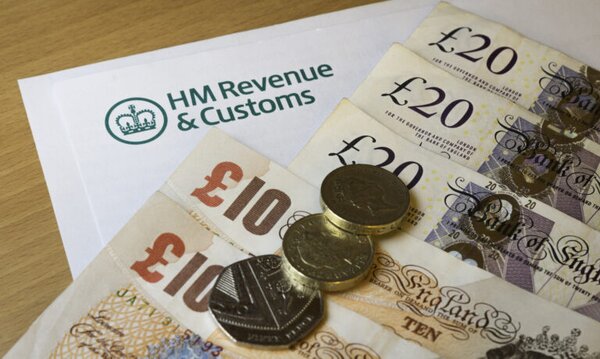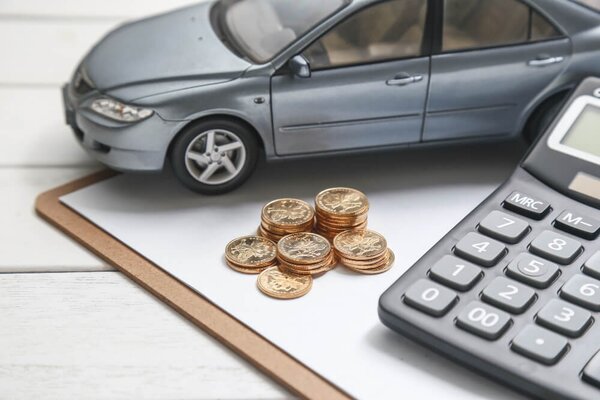Let’s Break This Down Together...
Worried HMRC might be watching your Vinted or Depop sales and not sure if you need to pay tax? You’re not alone, and many sellers are asking the same thing.
In this article, we’ll cover whether HMRC monitors online accounts, when your selling becomes taxable, and what new rules mean for you. We’ll also explain the £1,000 trading allowance, how Self Assessment fits in, and the steps to stay compliant.
By reading, you’ll know exactly where you stand so you can avoid stress and keep more of your profits. You’ll feel confident about your next move, let’s dive in.
Yes, HMRC Does Monitor Vinted and Depop Accounts
HMRC absolutely has the capability to monitor online marketplace activities. This isn’t about spying on your occasional wardrobe clear-out – it’s about identifying people who are actually running businesses.
The tax authority has sophisticated data-sharing agreements with many online platforms. Their powerful “Connect” system can flag unusual selling patterns or high-volume activity. The information collected by digital platforms—such as sales volume, transaction values, and seller identification—is shared with HM Revenue & Customs to ensure compliance with tax regulations.
From 2024, new OECD reporting rules require platforms to share seller data directly with tax authorities. Seller earnings are now reported automatically to tax authorities, making it essential for sellers to keep accurate records and disclose all relevant income.
These automated systems can cross-reference income from multiple digital sources. This makes it easier to spot undeclared earnings from marketplace selling.
When Does Your Online Selling Become Taxable?
There’s a big difference between clearing out unwanted items and trading for profit in HMRC’s eyes. Most casual sellers who occasionally sell personal items won’t need to worry about tax. The tax rules distinguish between casual sales and business activity, so it’s important to understand which category your selling falls into.
The £1,000 Trading Allowance is your friend here. This allowance is a certain threshold for extra income and additional income from side activities. If your total trading income stays below this threshold in a tax year, your earnings are tax free and you typically don’t need to declare it.
HMRC uses “badges of trade” to determine if you’re actually running a business. These include selling frequently, seeking profit, or purchasing items specifically to resell them. Side hustle activities and vinted sales may be scrutinized if they appear business-like.
Once your sales exceed the Trading Allowance, you’ll need to register for Self Assessment. Vinted sellers and e traders must register if their sale activity exceeds the threshold. And if your turnover hits £85,000 in a 12-month period, you’ll need to register for VAT too.

How HMRC Spots Undeclared Income
HMRC employs sophisticated digital intelligence to identify undeclared income. Risk assessment algorithms flag accounts showing business-like behaviour, such as high volume of sales.
Your bank transactions provide another data point for HMRC’s systems. Regular payments from online marketplaces, especially large ones, can trigger their interest. HM Revenue may analyze revenue from these platforms to identify undeclared income, especially if the revenue is not reported as required.
They might also monitor social media activity related to selling. I once helped a client who was investigated after boasting about her “thriving Depop shop” on Instagram while declaring no income.
The platforms themselves have legal obligations to share certain data with tax authorities. This sharing will increase under new digital economy reporting rules.
Tax Obligations for Regular Sellers
If you’re selling regularly for profit, you’ll need to register as self-employed. This should be done by 5 October following the tax year you started trading. Regular sellers are responsible for paying tax on their profits and may have a tax liability that must be reported to HMRC.
Keep thorough records of all your sales and expenses. Screenshots of listings, receipts for postage, and packaging costs should all be documented.
You can claim allowable expenses against your income. These include marketplace fees, postage costs, and packaging materials.
Sellers may also need to pay national insurance contributions if their income exceeds certain thresholds.
The Self Assessment deadline is 31 January following the tax year. You need to complete a Self Assessment tax return if your income from selling exceeds HMRC thresholds, and completing this process ensures you declare all taxable income. If you need to pay tax, make sure to do so by the deadline to avoid penalties. Late filing or payment can result in penalties starting at £100 and increasing over time.
For items that were personal belongings before you sold them, you typically won’t pay tax. This changes if you’ve made significant modifications or bought them with resale in mind.

Assessment Tax Return: How to Declare Your Online Sales
Filing a self assessment tax return for your online sales doesn’t have to be daunting if you follow a few key steps. First, make sure you keep accurate records of all your sales, including invoices, receipts, and bank statements. This will make it much easier to calculate your taxable income and complete your tax return accurately.
When it’s time to fill out your self assessment tax return, start by adding up your total sales for the tax year. Next, subtract any allowable expenses—such as platform fees, postage, packaging, and advertising costs—to work out your taxable income. Only your profits are subject to tax, not your total sales.
Once you’ve calculated your taxable income, complete your self assessment tax return online or by paper, declaring your online sales and any other income you have. Make sure to submit your tax return and pay any tax owed by the 31 January deadline to avoid penalties. If you’re unsure about any part of the process, consider using digital tools or seeking advice to ensure your assessment tax return is completed correctly and on time.
New Powers of HMRC: What Sellers Need to Know
Recent changes have given HMRC new powers to tackle tax evasion among online sellers. From 1 January 2024, online marketplaces like eBay, Amazon, and Vinted are required to report sellers’ earnings directly to HMRC. This means that if your earnings from online selling go above the £1,000 threshold, you must register as self-employed and file a self assessment tax return.
If you fail to declare your income or pay tax owed, HMRC can now access your sales data from online marketplaces and may issue penalties or fines for non-compliance. In serious cases, tax evasion can even lead to criminal prosecution. HMRC can also request additional information from online platforms to investigate suspected tax evasion.
To stay on the right side of the rules, make sure you’re aware of these new regulations and report all your online earnings accurately. Register as self-employed if you cross the threshold, keep detailed records, and complete your self assessment tax return on time. Being proactive about your tax obligations will help you avoid unexpected tax bills and ensure you’re fully compliant with HMRC’s new powers.

Final Thoughts
HMRC's monitoring of online marketplaces grows more sophisticated each year. They primarily target people running businesses rather than occasional sellers.
The £1,000 Trading Allowance provides a helpful buffer for casual sellers. Once you cross that threshold or show clear trading patterns, tax obligations kick in.
Being proactive about record-keeping saves headaches later. When in doubt, seeking professional advice specific to your situation is always worthwhile.
Simplifying Online Marketplace Tax
Tracking your Vinted and Depop sales doesn't need to be a headache. The UK's first personal tax app, PIE, can help categorises your marketplace income and expenses.
Our app shows you in real-time whether you're approaching tax thresholds. We identify which of your selling expenses are tax-deductible, maximising your legitimate claims.
Pie connects directly with your bank and marketplace accounts. This eliminates manual record-keeping and ensures nothing falls through the cracks.
For those who need to report to HMRC, we simplify the Self Assessment process. The app handles the calculations and submission, removing the stress from tax season.











